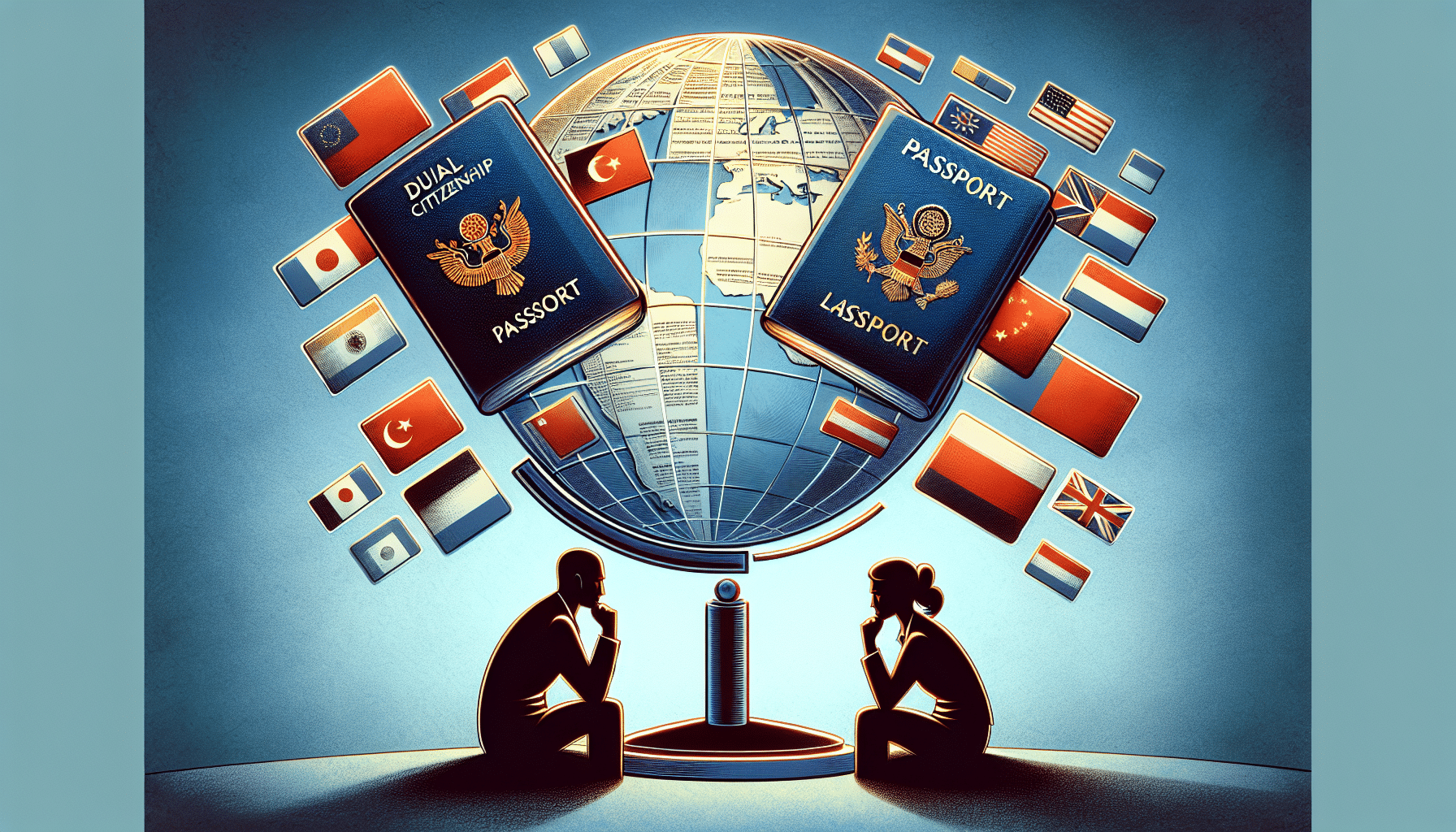Dual Citizenship Dilemmas: Legal Implications for Global Citizens
Dual Citizenship Dilemmas: Legal Implications for Global Citizens
Are you a global citizen, constantly traveling across borders and embracing different cultures? Have you ever considered obtaining dual citizenship to enhance your international lifestyle? Dual citizenship, also known as multiple citizenship, refers to the status of an individual who is a citizen of two or more countries. This phenomenon has become increasingly popular in recent years, as individuals seek to expand their opportunities and connections beyond their native country. While dual citizenship has numerous benefits, it also comes with legal implications that every global citizen should be aware of. In this article, we will delve into the dual citizenship dilemmas and explore the legal implications that may arise for global citizens. 
The Advantages of Dual Citizenship
Dual citizenship offers a range of benefits, making it an attractive option for individuals with strong global ties. Firstly, it allows for seamless travel and extended stays in both countries of citizenship, without the need for a visa. This is advantageous for business professionals, students, and retirees who wish to spend a significant amount of time in different countries. Additionally, dual citizenship provides access to services, such as healthcare and education, in both countries. Furthermore, having dual citizenship can also broaden job opportunities and increase one’s chances of economic stability.
The Legal Implications
While dual citizenship presents many opportunities, it also comes with legal implications that can be complex and challenging to navigate. One of the main concerns is the potential conflict of laws between the two countries. Each country has its own set of laws and regulations, which can sometimes contradict or overlap with the other. This can lead to confusion and difficulty in determining which country’s laws apply in certain situations. For example, when it comes to taxation, a dual citizen may be required to file taxes in both countries, potentially resulting in double taxation.
Another issue that can arise is the obligation to serve in the military. Some countries require their citizens to fulfill military service, and dual citizens may be expected to serve in both countries. This can pose a dilemma for individuals who do not wish to serve or face dangers in certain military operations.
One of the most critical legal implications of dual citizenship is the responsibility to comply with all laws and regulations of both countries. This means that if a dual citizen violates the laws of one country, they may face consequences in both countries. Additionally, some countries have restrictions on dual citizens holding public office or government positions. It is crucial for global citizens to be aware of and adhere to the laws of their countries of citizenship to avoid any legal complications.
Conclusion
In conclusion, dual citizenship offers numerous advantages for global citizens, including seamless travel, expanded opportunities, and access to services. However, it also comes with legal implications that should not be overlooked. It is essential for individuals considering dual citizenship to thoroughly research and understand the laws and regulations of both countries to avoid any conflicts or legal complications. Dual citizenship should not be taken lightly, and individuals should seek professional legal advice before making a decision. As the saying goes, with great power comes great responsibility, and this applies to the privilege of holding dual citizenship as well.









